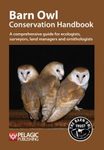"Captivating [...] full of insights into not only our planet's evolutionary past but also its future"
– Hephzibah Anderson, Mail on Sunday*****
"A lavishly talented nature writer, [he] weaves a seamless narrative from the most diverse observations [...] a master of descriptive nuance"
– Wall Street Journal
"A fascinating, enjoyable read"
– Bird Watching
"Utterly captivating and beautifully written, this book is a hugely entertaining and enlightening exploration of a bird so wickedly smart, curious, and social, it boggles the mind. Along the way, Meiburg takes us from the Falklands to the UK, from Guyana to the Antarctic and Florida, and from deep time to the present and back again, describing in brilliant language why these birds – and their planet – are the way they are. If you love birds, natural history, science, travel, adventure, or just great writing, you will be rapt"
– Jennifer Ackerman, author of The Genius of Birds
"A book about almost everything [...] Meiburg tells the biggest of stories via the odd Falkland Islands' raptor, the Johnny Rook [...] The clarity, the verve and precision of his writing is perfect"
– Tim Dee, author of The Running Sky
"A fascinating, entertaining, and totally engrossing story of these under-appreciated birds, deftly intertwining natural history and human history, and with insights and lessons that go far beyond the subject birds"
– David Sibley, author of What It's Like to Be a Bird
"I'm in love with this book. If you like great writing, strange historical twists, adventure, nature, music and/or birds, this will quickly become one of your all-time favourite books"
– Laurie Anderson, artist and musician
"Caracaras are not like other birds, or even other birds of prey. Curious, wide-ranging, gregarious, and intelligent, the ten species of caracara are a scientific puzzle that has intrigued biologists since the days of Darwin. And this book – as curious, wide-ranging, gregarious, and intelligent as its subject – is not like any other book that I have encountered. A Most Remarkable Creature is not only about a bird, but about the community of people that has formed, almost accidentally, around the bird, and beyond that about humankind itself"
– Charles C. Mann, author of 1491
"What a remarkable feat: taking a mysterious, oddly social, keenly intelligent bird of prey that most of the world has never heard of and animating the creature with such beauty that it comes fully alive in our imaginations. Jonathan Meiburg went on an equatorial search for the latter-day descendants of the age-old caracara and brought back – a little like Darwin himself – travel report, documentary, biography, social history, scientific treatise. And all of it so wonderfully readable."
– Paul Hendrickson, author of Hemingway's Boat: Everything He Loved in Life, and Lost
"File under literature rather than ornithology and enjoy this book as bedtime reading, but it is not – as implied by the subtitle and cover picture – an in-depth study of Caracaras. The Penguin website describes it as ‘a hybrid of science writing, travelogue, and biography’ but the science, despite an extensive bibliography, is distinctly popular and second-hand. The notes and bibliography have no links from the text, and vary from a simple page reference in the source to argued explanations. [...] Either I'm missing something, or the elegant prose has repressed editorial advice to inform rather than impress. From the book, I assumed Meiburg is simply a birdwatcher rather than ornithologist, but the contact with Robin Woods in 1997 apparently endures, so maybe an in-depth study could be in preparation, if only the author doesn't get side-tracked."
– R. Allan Reese, Ibis, 2021



































